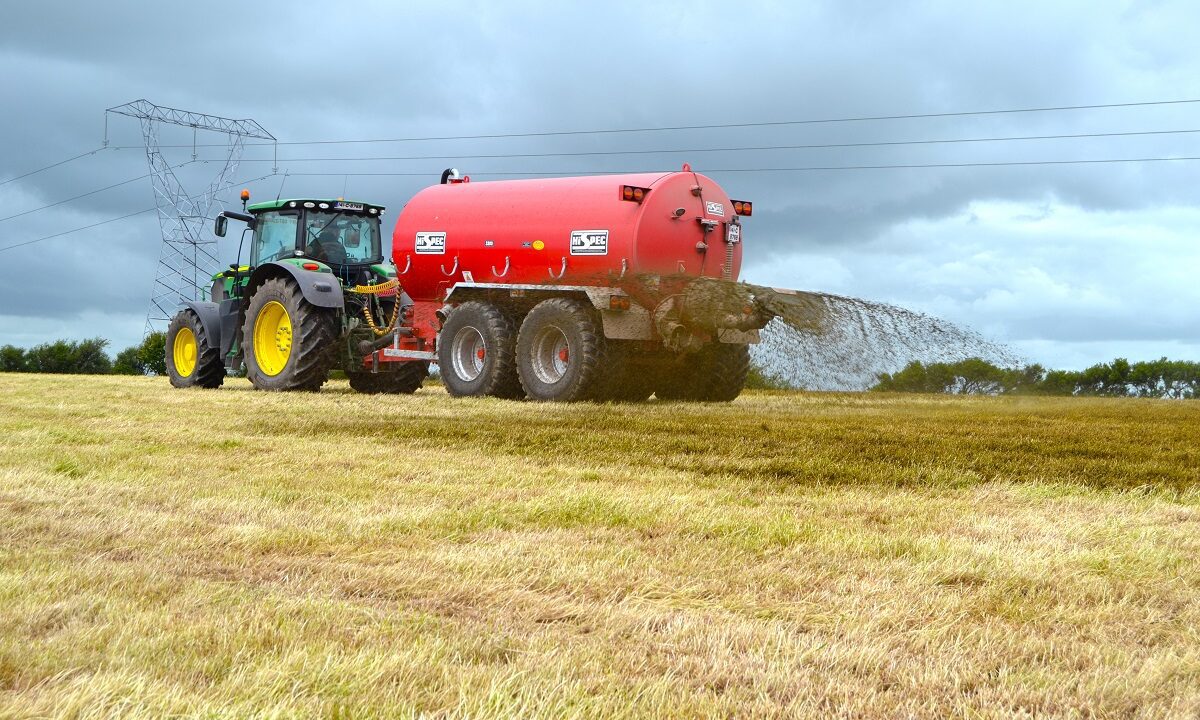Farmers who have been granted a nitrates derogation risk being sanctioned if they ignore slurry spreading rules, a spokesperson for the Department of Agriculture, Food and the Marine has warned.
The date by which nitrates derogation farmers must have 50% of their slurry spread was extended from June 15 to July 15 earlier this year.
Thereafter, the remainder of slurry must be spread by low-emission technology, the department spokesperson added.
Continuing, the spokesperson said: “This was a limited extension and there are no plans to extend it further.
If a nitrates derogation farmer is found to be spreading slurry with a splashplate after the relevant deadline, then a sanction may be imposed on the basic payment and other EU payments where relevant.
The measure was reportedly introduced in order to reduce ammonia emissions and increase nitrogen use efficiency.
It was an important element in securing Ireland’s nitrates derogation for the period 2018-2021, the spokesperson for the department explained.
“The latest information from the EPA shows that Ireland exceeded its emission limits for ammonia for the first time in 2016 and emissions of this gas are increasing,” the spokesperson noted.
Securing Ireland’s nitrates derogation
Earlier this year, it was confirmed that Ireland had been formally granted a derogation under the Nitrates Directive – following the receipt of legal approval from the European Commission.
The news was confirmed in a joint announcement by the Minister for Agriculture, Food and the Marine, Michael Creed, and the Minister for Housing, Planning and Local Government, Eoghan Murphy, earlier today.
Commenting at the time of the announcement, Minister Creed said: “The renewal of the derogation for a further four years is great news for Ireland’s farmers, as it allows them to plan ahead with certainty over the medium term.
All farmers have an important role to play in protecting our environment particularly those farming intensively.
The derogation allows more intensive farmers to operate at a higher stocking rate than that stipulated in the directive, subject to adherence to stricter rules to be implemented by the department.
